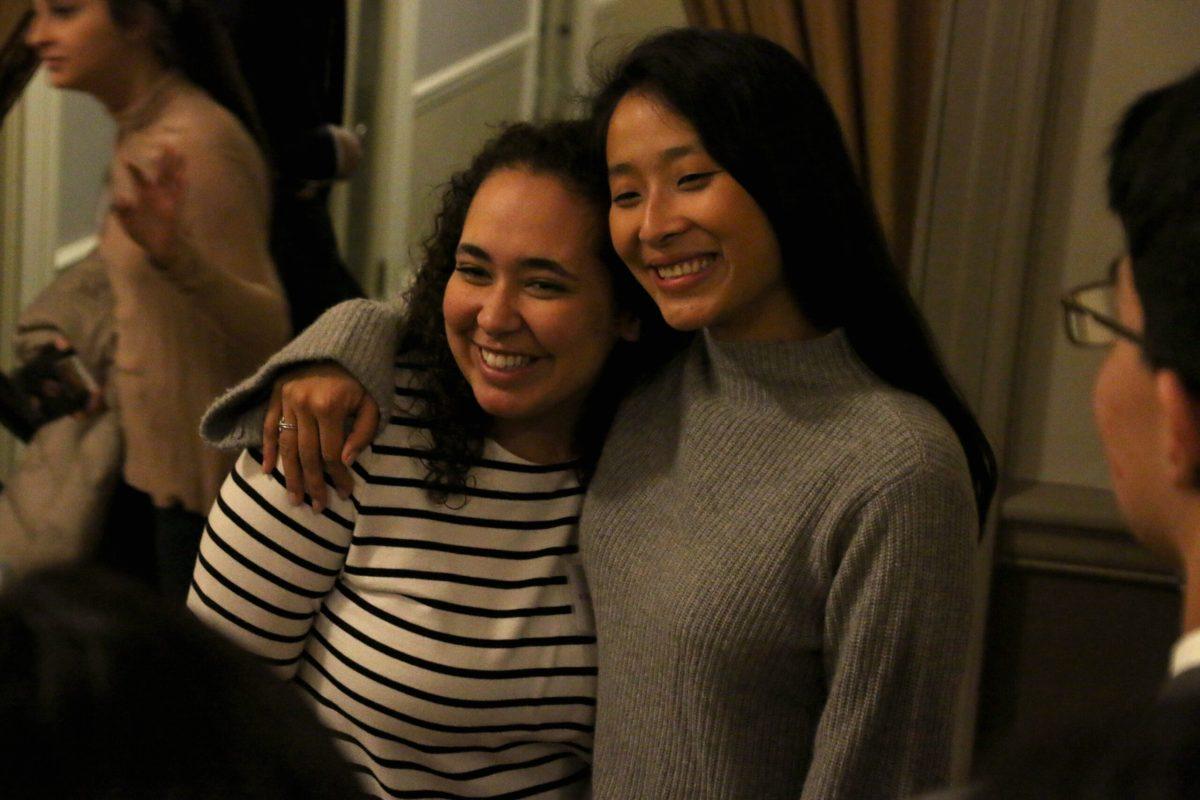
The Women’s Leadership Conference took place at the Tiger Hotel on March 17. The annual MU event welcomes female students and women in the Columbia area.
At the event, participants started by attending two breakout sessions that intended to educate and unify women. Speakers such as Amanda Buchholz, president of the Kansas City chapter of the National Organization for Women, hosted a breakout session that educated women on menstrual equity.
“I came to speak because I think it’s imperative that women of all ages make connections with young women as they’re choosing their career paths but are preparing to come out into the world,” Buchholz said. “It’s really an ideal situation to speak to young minds, especially when it’s a women’s leadership conference. There is nothing like being in a room full of women who are in a student community as well as from the professional community. It’s not very often that these diverse groups come together, and the whole purpose is not just to educate each other but to inspire one another and to create a community of women where we help one another.”
The first keynote speaker, Lauren Ash, spoke while the women in attendance ate lunch. Ash, a wellness guru and podcaster, had the participants join together for a mindfulness activity. During the activity, Ash had the attendees think about women who have impacted and shaped their lives and when it’s OK to let certain unhealthy relationships go.
“This year, for me, is about owning my power,” Ash said during the activity. “Once I started shifting from end goals to larger intentions, I exceeded the goals that I had in my life.”
The empowerment breakout session after Ash’s speech was created with the idea of teaching women how to channel the best versions of themselves to the world. MU senior Tyler Riley decided to focus her session on goals and mental health. During her session, attendees were encouraged to write down the best versions of themselves and ideas of their best future.
“Now, what’s getting in the way of your future best self?” Riley said. “The answer is nothing. The only thing that’s getting in your way is perspective. What we need to realize is that our walk is not defined by our struggles, but rather by how we embrace them.”
The conference then shifted from the empowerment session to the last keynote speaker, Nadya Okamoto, a sophomore at Harvard University. PERIOD, a movement Okamoto started when she was 16 years old, focuses on sexual and menstrual education and also provides menstrual products to women in need. During a time when Okamoto was struggling with insomnia, she began to research the role that menstruation plays in women’s lives around the world.
“I learned that periods are the No. 1 reason why girls don’t go to school in developing countries because it signifies a girl’s transition from girlhood into womanhood,” Okamoto said during her speech. “But that information was relatively easy to find. What was harder was to uncover the need in the U.S. and realizing that there’s no sustainable service that brings period products to women in homeless shelters or prisons, and you can find these articles and realize how pads and tampons become bargaining chips of power between guards and inmates in female prisons because there simply is not enough.”

After speaking with homeless women in the downtown Portland, Oregon, area where she was raised, Okamoto decided to make a change in her community. She committed to making packages every week for 20 homeless women she had met.
“That’s all I wanted to do; I was just dreaming small,” Okamoto said. “I talked to everyone, went to Eventbrite and won every competition I could find and ended up getting a startup grant from Hillary Clinton’s foundation for about $25,000, and I recruited a staff.”
Now, PERIOD is the largest youth-run nongovernmental organization in women’s health and one of the fastest-growing nonprofits in the United States. Okamoto is also currently focusing on Next Fellows, an organization that matches youth with peer leaders to make political change the youth hope to see.
MU freshman Abigail Labonte said hearing Okamoto speak inspired her to make changes in her own community.
“Nadya was really inspiring in showing that there are women’s issues that not a lot of people think about and that there is always change to be made,” Labonte said. “I think what I’m going to take from this conference is to stop the stigma of being afraid to talk about issues. If someone asks about a particularly feminine issue that I normally wouldn’t be comfortable talking about, I would get the word out and talk about it on social media to just get it out there.”
The speakers at the Women’s Leadership Conference hope to inspire women to make changes of their own.
“It’s great to share stories and talk about these things,” Buchholz said during her session. “But what matters is what you do when you leave here.”
_Edited by Brooke Collier | [email protected]_